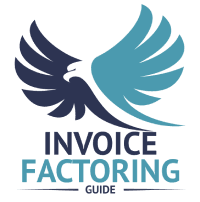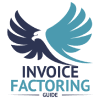Invoice Factoring for Manufacturing Companies
Do you need to maintain a steady cash flow while waiting for customers to pay their invoices? Are you looking to offer better payment terms to your clients? Then, manufacturing factoring is the solution.
By selling your unpaid invoices to a factoring company, you can receive quick access to working capital without accumulating debt. This allows you to extend more generous payment terms while still having the funds you need to support your operations, purchase inventory, maintain your equipment, pay your staff, and invest in growth. With factoring, you can focus on the core areas of your business without relying on traditional financing methods.
Manufacturing Factoring vs. Bank Loans
Compared to bank loans, invoice factoring is a faster and more flexible financing option, allowing you to sell as many or as few invoices as you need to meet your cash flow needs. With a factoring advance of up to 90% of the invoice value, you can cover expenses and invest in your business while waiting for your customers to pay. Plus, factoring eliminates the time-consuming task of collections, allowing you to focus on core business activities.
Bank loans often require meeting strict eligibility requirements and going through a lengthy approval process, and they also accumulate costly interest. In contrast, factoring comes with a small fee that is generally lower than the interest rates of bank loans and has no hidden fees, making it a more transparent and cost-effective financing option for manufacturing companies.

Top Financial Challenges in the Manufacturing Industry
As a manufacturing company owner, you’ll likely encounter several financial challenges that can affect your business’s profitability. Here are some of the most common financial challenges you might face:
Successfully navigating these challenges can be crucial to the long-term success of your manufacturing business. However, without the necessary capital to make changes or create a savings cushion for your business, overcoming these challenges is a lot more difficult.
How to Run a Successful Manufacturing Company
To succeed in the manufacturing industry, companies must be proactive and agile, which can involve diversifying products, seeking alternative suppliers, and investing in technology. Here are some tips for running a successful manufacturing company:
Financing Options for Manufacturing Companies
Apart from bank loans, manufacturing companies have several alternative financing options available to them, including:
Asset-based lending (ABL): ABL is a type of financing that uses a company’s tangible assets, such as inventory, equipment, property, and accounts receivable, as collateral. This option can provide quick access to funds but may come with higher interest rates and fees, in addition to the fact that you are putting your assets at risk.
Equipment leasing: For businesses that cannot afford to purchase expensive equipment outright, leasing can be a good option. While it can help your business stay up-to-date with the latest technology, its interest rates are notably high, leading to higher costs in the long run. Plus, if you default, it hurts your credit, and you could lose the equipment.
Invoice factoring: As mentioned earlier, invoice factoring can provide quick access to working capital by selling unpaid invoices to a factoring company. This option is flexible, affordable, easily attainable, and debt-free.
When considering your financing options, be sure to weigh the costs and benefits of each option and choose the solution that best meets your needs and goals. Working with a reputable financing partner with experience in the manufacturing industry can also help you make informed decisions and find the right financing solution for your company.
Maximizing Business Growth with Manufacturing Invoice Factoring
In today’s competitive manufacturing sector, understanding how to use invoice factoring can be pivotal in helping your manufacturing business thrive. Factoring companies offer tailored solutions, including invoice factoring services specifically designed for manufacturers. By turning over invoices to a factoring company through a factoring agreement, you can access
capital funding solutions that are more flexible than traditional lines of credit. Manufacturing invoice factoring ensures a consistent cash flow, which is vital for business owners looking to manage cash flow effectively and invest in areas of their business that spur growth.
With manufacturing factoring companies, the factoring process is straightforward: once your invoice is approved, you can receive up to 90% of the invoice value promptly so you can address any cash flow issues Factoring doesn’t just provide funding solutions; it’s an alternative funding approach that assists manufacturing companies that don’t
qualify for traditional financing. The remaining balance, minus the cost of factoring, is settled once customers pay their invoices, typically within 60 to 90 days. This arrangement helps small businesses, especially in the manufacturing sector, to maintain a steady cash flow and grow their business without the wait of 30, 60, or 90 days for payments.
Remember, the best manufacturing factoring programs offer more than just financing; they include services like online reporting, accounts receivable management, and longer payment terms, all tailored to the specific needs of manufacturers. Thus, including invoice factoring in your financial strategy not only helps in managing cash flow but also in achieving business growth, making it a cornerstone for success in the manufacturing industry. Factoring works by providing the capital and support your business needs to navigate the challenges of the manufacturing landscape, ensuring you’re always ready to help your manufacturing business expand and succeed.
When considering your financing options, be sure to weigh the costs and benefits of each option and choose the solution that best meets your needs and goals. Working with a reputable financing partner with experience in the manufacturing industry can also help you make informed decisions and find the right financing solution for your company.
Industry-specific factoring companies will know exactly how to navigate the challenges of the manufacturing and distribution industry, making them better equipped to create customized solutions for your business. At Invoice Factoring Guide (IFG), we aim to help you find the right manufacturing factoring partner for your unique business needs.
Explore and compare industry-specific factoring companies on our website, or if you’re ready to jump straight into factoring for manufacturing companies, request a free rate quote!
Get an instant funding estimate
Results are estimates based on the calculated rate and the total invoice amount provided.
Actual rates may vary.
Request a Factoring Rate Quote
PREFER TO TALK? Call us at 1-844-887-0300


